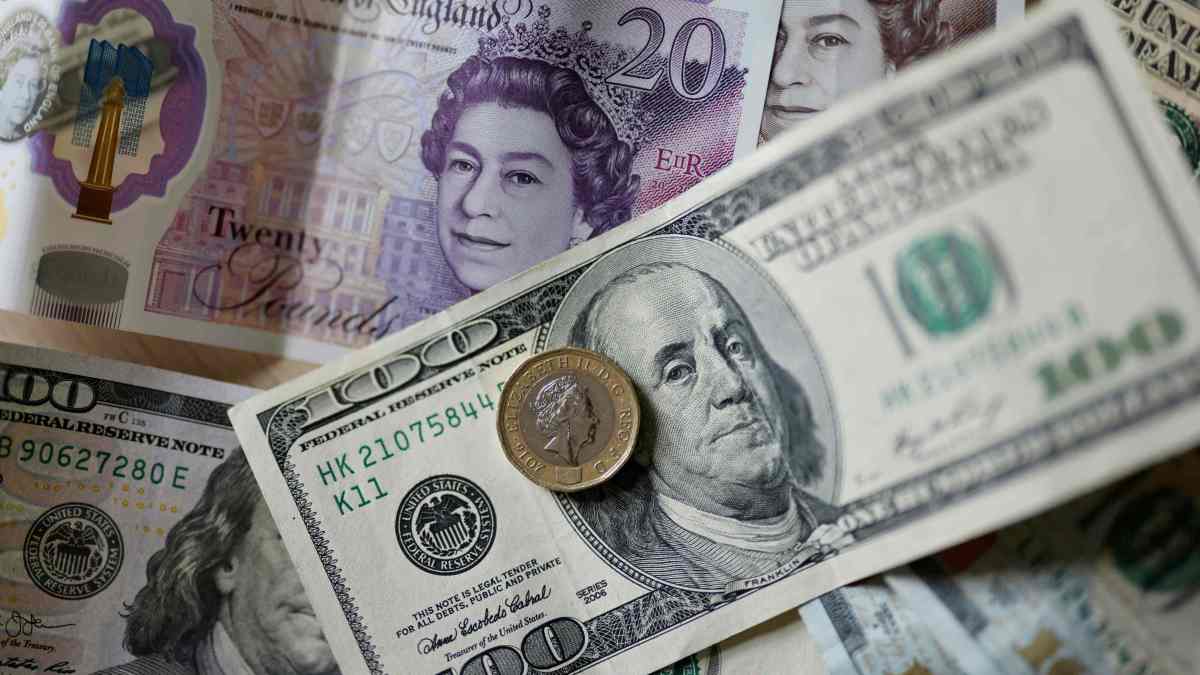The pound rose to a fresh three-year high against the dollar, and gold headed back toward an all-time high on Monday after President Trump went back on the offensive in his trade war.
Sterling strengthened 0.73 per cent to $1.355, its highest since the middle of 2022 and taking its gains against the dollar since the start of the year to more than 8 per cent. The pound also strengthened 0.08 per cent against the euro to €1.18, but is down 1.76 per cent against the currency since the start of the year.
Safe-haven buying pushed the gold price up 1.75 per cent to $3,349.65 per ounce. Geopolitical and trade tensions saw gold hit an all-time intraday high of $3,500.05 on April 22.
Investors ditched the dollar following an escalation in tensions between Washington and Beijing as a pause in the tit-for-tat tariffs between the countries looked to have ended. The dollar fell 0.66 per cent against a basket of currencies and is down by nearly 9 per cent over the past six months.
On Monday, China accused the United States of “seriously violating” a trade truce after Trump last week, in a post on Truth Social, said that “China, perhaps not surprisingly to some, HAS TOTALLY VIOLATED ITS AGREEMENT WITH US”.
Last month, after talks in Geneva, China and the US agreed to lower tariffs on each other’s imported goods by 115 percentage points for 90 days. The intention behind the temporary tariff climbdown was to cool relations to open up space for trade talks.
Analysts at Deutsche Bank, the German investment bank, said: “It is really hard to keep up or predict what’s going to happen on trade at the moment, and that’s before we factor in the full ramifications from the court ruling last Thursday night, and then subsequent brief stay of execution for them on appeal.”
Last week, a US trade court ruled that Trump’s “reciprocal tariffs” were illegal, before an appeals court temporarily reinstated them. The White House has said it intends to overturn the original ruling.
“For now it seems likely that the tariff uncertainty will linger for a long time ahead, even if we’re still likely past the peak aggressiveness of US policy”, Deutsche Bank said.
Trump has sharpened his commitment to protectionist policies after gradually walking back their most onerous elements in recent weeks. Late last week, the President announced that charges on imported steel and aluminium would double to 50 per cent from 25 per cent.
Oil rose sharply, with the price of Brent crude, the international benchmark, up 3.27 per cent to $64.81 a barrel after OPEC+, the oil cartel, decided to increase output in July by the same amount as it did in each of the prior two months. Traders said that was a relief to those who had expected a bigger increase.
The FTSE 100 rose by 0.06 per cent and the mid-cap FTSE 250 edged up 0.06 per cent. The yield on the ten-year UK government bond rose 4 basis points to 4.69 per cent.
